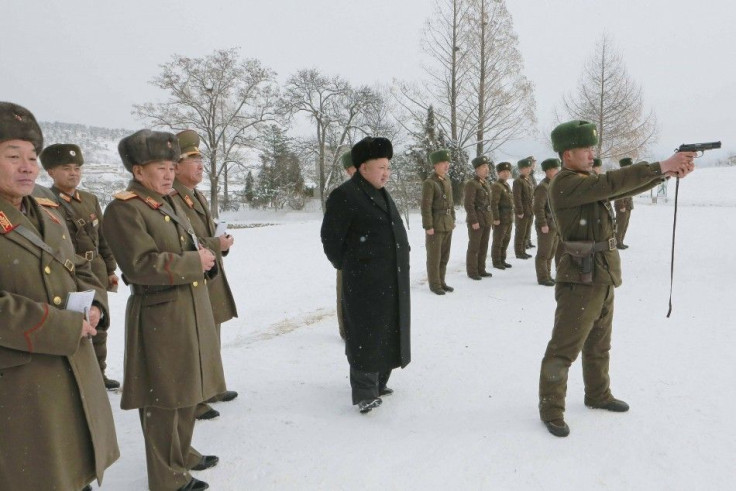N. Korea May Already Have Ballistic Missiles Which Could Get Tested In 2015 – U.S. Expert

South Korea's Defense Ministry believed its northern sister country already possess ballistic missiles. The efficacy of these weapons, according to a U.S. security expert, could get tested this year.
North Korean leader Kim Jong-un, in his New Year address broadcast on Jan 1, maintained the country's war-fighting forces would be enhanced this year. He specifically mentioned that the country's development of nuclear weapons form part of that enhancement. In the latest white paper released by S. Korea on Tuesday, it revealed N. Korea had began placing invasion posts along the demilitarized zone that separates the two countries. S. Koreans believed these were being laid down to enable its northern counterpart carry out a rapid invasion into the south should war erupts between them. The paper also said N. Korea has developed submarines capable of carrying ballistic missiles, as well as increased its artillery and mechanized forces.
"The United States is likely to see the next series of North Korean nuclear and ballistic missile tests. These may demonstrate Pyongyang's crossing of a new technology threshold, such as warhead miniaturization, a uranium-based test, more accurate ballistic missile or nuclear fusion capabilities," Yonhap News quoted Victor Cha, chief Korea analyst at the Center for Strategic and International Studies.
N. Korea, by virtue of the sanctions imposed by the United Nations, is banned from testing or developing ballistic missiles. But Cha believed Kim Jong Un's bailiwick will go around this and will use various "various pretexts for provocations," such as the annual joint military exercises between South Korea and the U.S., and the measures related to the cyber-attack on Sony Pictures, among others.
"In any event, the administration must be prepared to meet these provocations with concrete measures that acknowledge the necessity of deterring a nuclear North Korea," Cha said. He said the Korean Peninsula must be equipped with more advanced missile defense systems to strengthen its deterrence capabilities.
Moreover, he called on the U.S. to initiate and close the gap between South Korea and Japan. Their trio could become the most reliable source of stability in Asia, he told Yonhap.





















